Standing in the Snow at Cheng’s Door程门立雪
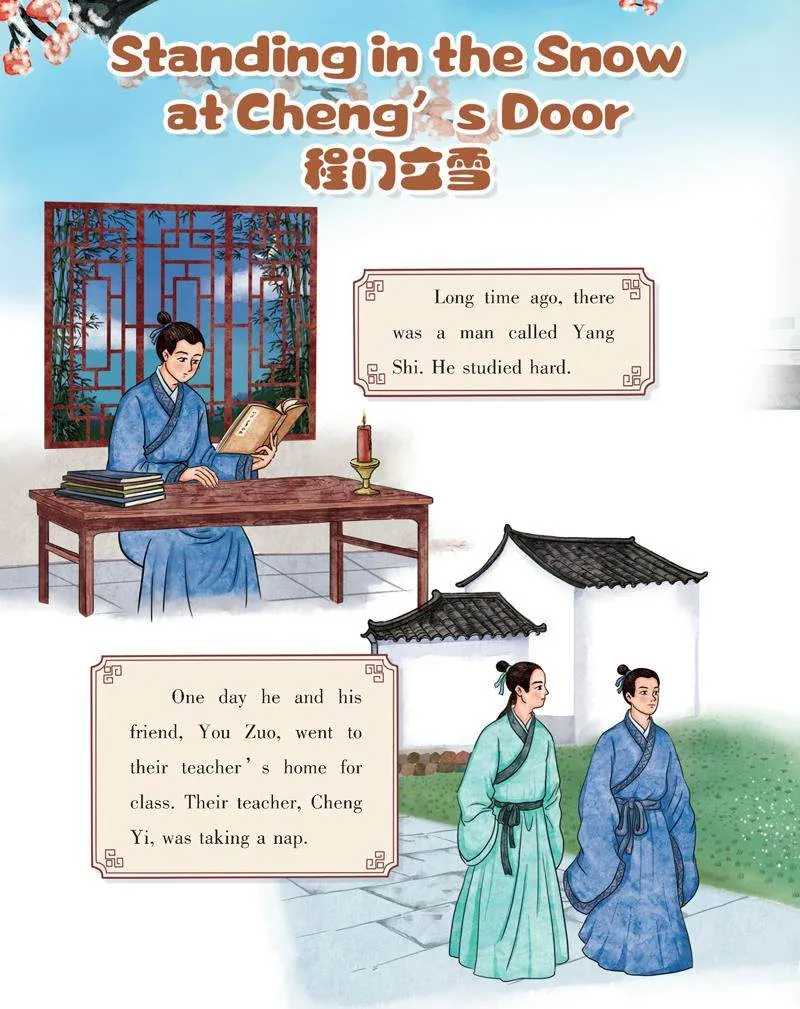
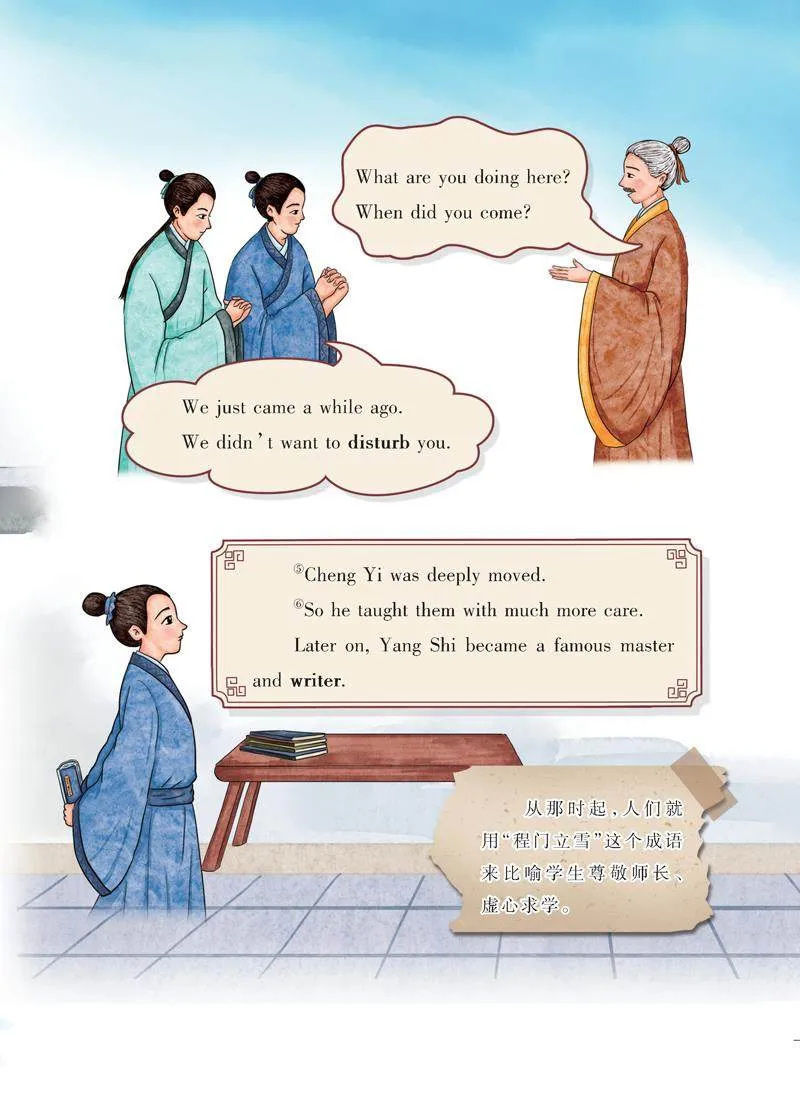
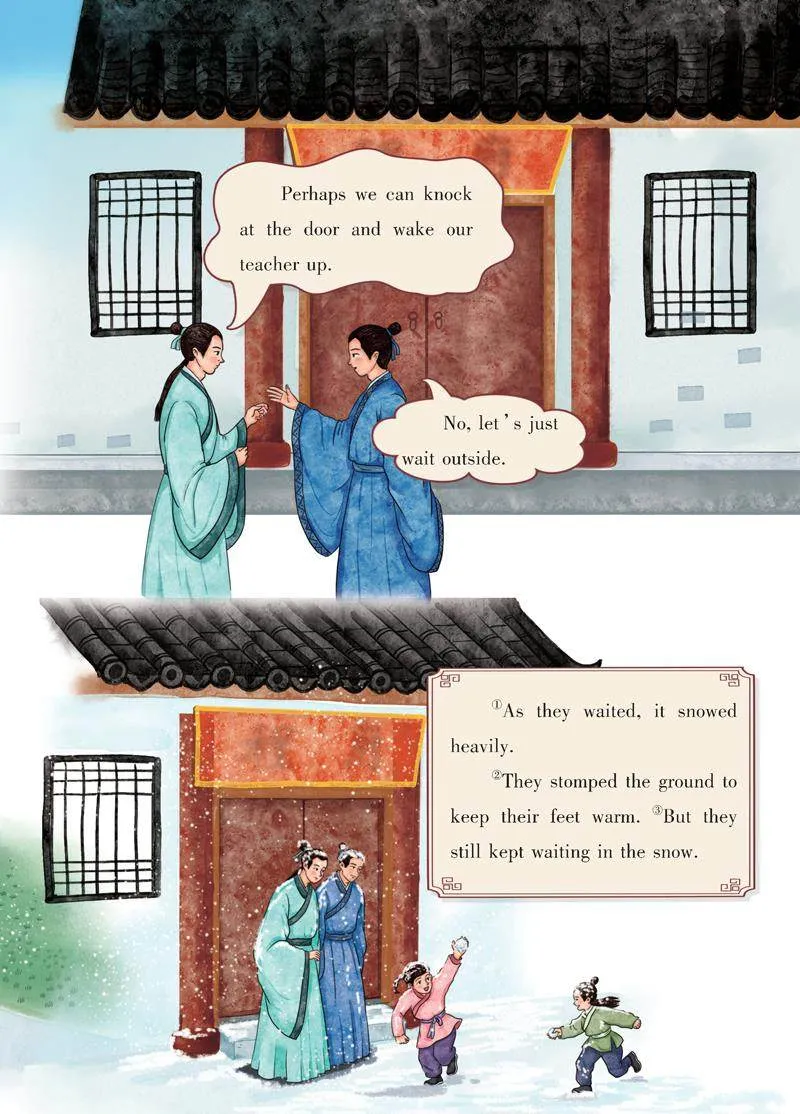
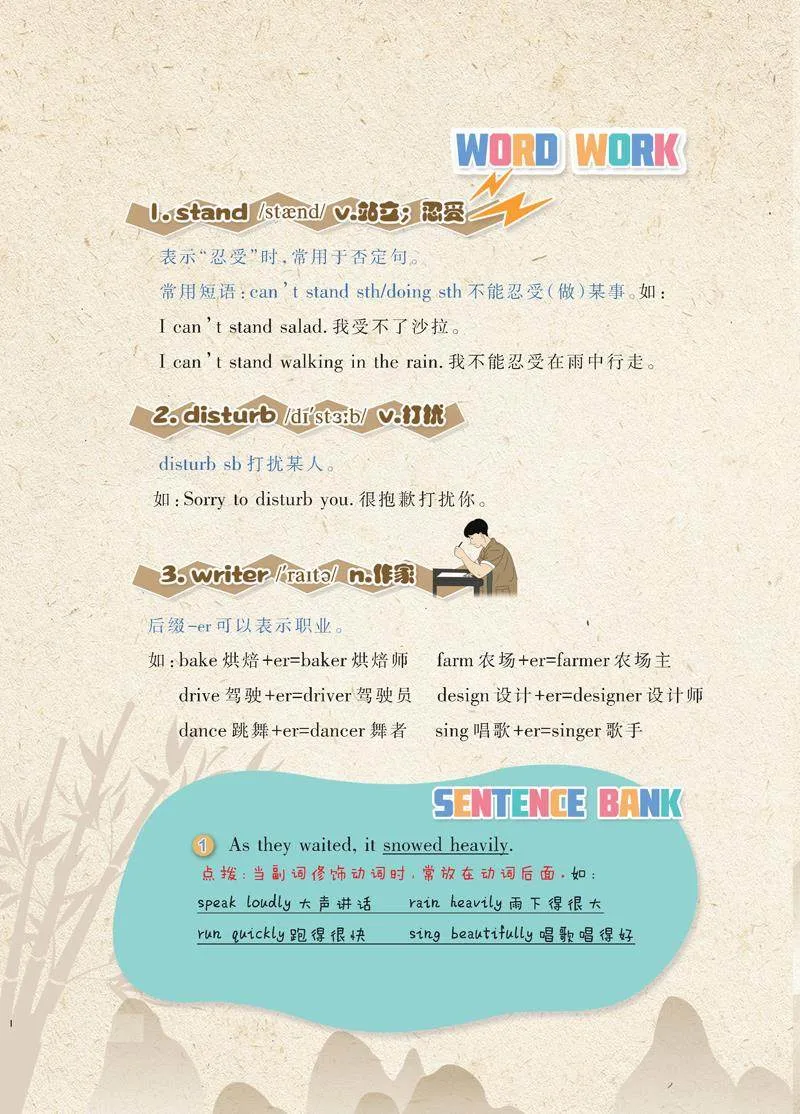
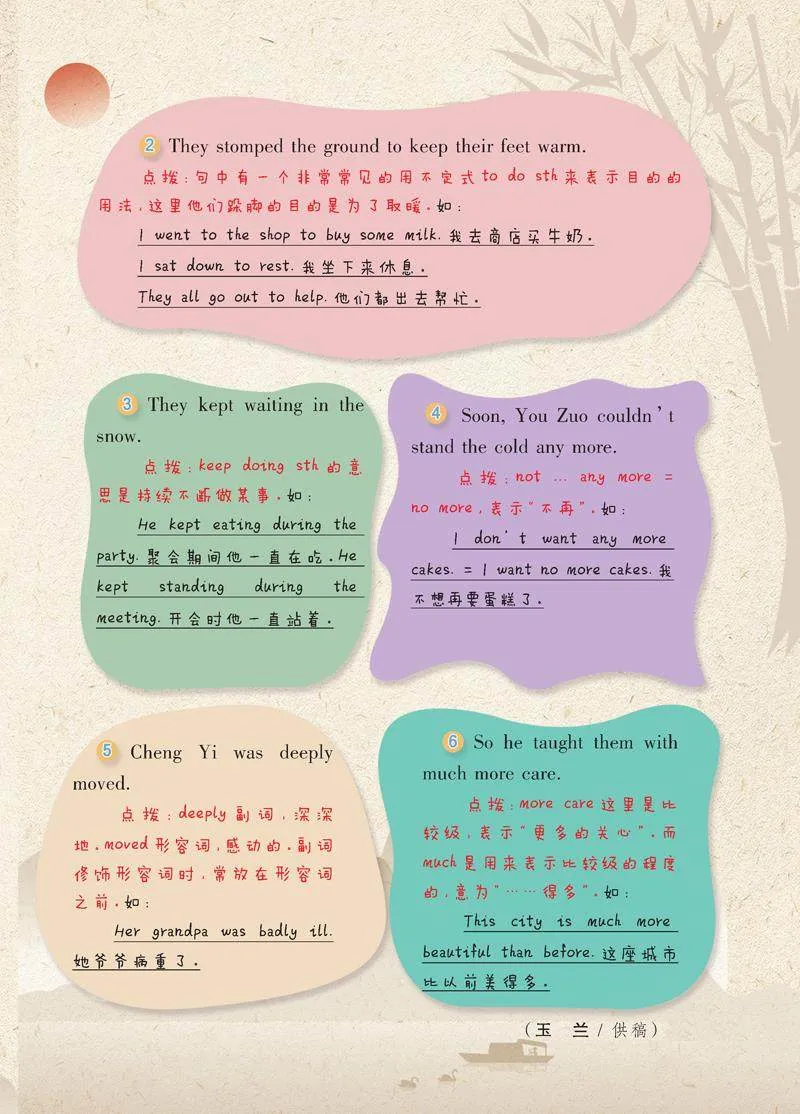

Long time ago, there was a man called Yang Shi. He studied hard.
One day he and his friend, You Zuo, went to their teacher’s home for class. Their teacher, Cheng Yi, was taking a nap.
Perhaps we can knock at the door and wake our teacher up.
No, let’s just wait outside.
①As they waited, it snowed heavily.
②They stomped the ground to keep their feet warm. ③But they still kept waiting in the snow.
④Soon, You Zuo couldn’t stand the cold any more, and he wanted to knock at the door. But Yang Shi stopped him again.
Cheng Yi finally woke up.
When he opened the door, he found two snowmen standing right outside.
What are you doing here?
When did you come?
We just came a while ago.
We didn’t want to disturb you.
⑤Cheng Yi was deeply moved.
⑥So he taught them with much more care.
Later on, Yang Shi became a famous master and writer.
从那时起,人们就用“程门立雪”这个成语来比喻学生尊敬师长、虚心求学。
stand/stænd/
表示“忍受”时,常用于否定句。
常用短语:can’t stand sth/doing sth不能忍受(做)某事。如:
I can’t stand salad.我受不了沙拉。
I can’t stand walking in the rain.我不能忍受在雨中行走。
disturb sb打扰某人。
如:Sorry to disturb you.很抱歉打扰你。
后缀-er可以表示职业。
如:bake烘焙+er=baker烘焙师 farm农场+er=farmer农场主
drive驾驶+er=driver驾驶员 design设计+er=designer设计师
dance跳舞+er=dancer舞者" " "sing唱歌+er=singer歌手
As they waited, it snowed heavily.
点拨:当副词修饰动词时,常放在动词后面。如:
speak loudly大声讲话 rain heavily雨下得很大
run quickly跑得很快 sing beautifully唱歌唱得好
They stomped the ground to keep their feet warm.
点拨:句中有一个非常常见的用不定式to do sth来表示目的的用法,这里他们跺脚的目的是为了取暖。如:
I went to the shop to buy some milk.我去商店买牛奶。
I sat down to rest.我坐下来休息。
They all go out to help.他们都出去帮忙。
They kept waiting in the snow.
点拨:keep doing sth的意思是持续不断做某事。如:
He kept eating during the party.聚会期间他一直在吃。He kept standing during the meeting.开会时他一直站着。
Soon, You Zuo couldn’t stand the cold any more.
点拨:not ... any more = no more,表示“不再”。如:
I don’t want any more cakes. = I want no more cakes.我不想再要蛋糕了。
Cheng Yi was deeply moved.
点拨:deeply副词,深深地。moved形容词,感动的。副词修饰形容词时,常放在形容词之前。如:
Her grandpa was badly ill.她爷爷病重了。
So he taught them with much more care.
点拨:more care这里是比较级,表示“更多的关心”。而much是用来表示比较级的程度的,意为“……得多”。如:
This city is much more beautiful than before.这座城市比以前美得多。

